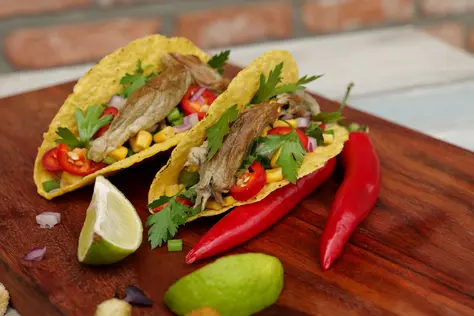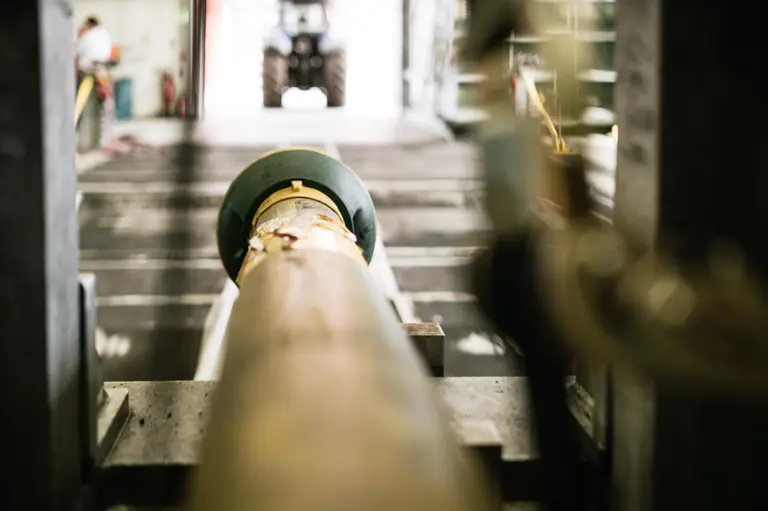ProSweets Cologne 2025: Sustainable packaging as the key to combatting food waste
The "Sweet Week" comprising of ProSweets Cologne and ISM, which brings the sweets and snacks producers together with the suppliers, is taking place from 2 to 5 February 2025.
ProSweets Cologne is the top address for all sweets and snacks producers, who want to organise their packaging processes more environmentally-friendly, more economically and thus more contemporarily. Around 250 exhibitors will inform the visitors on-site at the Cologne fair grounds about their product line-ups in this section, including PAPACKS Sales GmbH from Germany, Kreatif Kutu San ve Tic A.S. from Turkey or WRH Industries LLC from the USA. Here the focus also lies on the role of sustainable and recyclable packaging to combat food waste.
From hard caramels, jelly babies, chocolate and liquorice, through to pretzels, gluten-free, vegan and fat-reduced snacks - today's sweets and snacks market is as diversified as the trends that drive it. Even beyond the most important seasonal occasions like carnival, Easter, Halloween or Christmas, the brightly packed products entice the customers to buy. A glance at the shelves in the supermarket shows: Brand names and the trade are increasingly opting for sustainable packaging, whether in the form of recyclable materials or by dispensing with plastic.
Mono-materials: Recyclable but demanding
The latest innovations include cardboard packaging that completely does without glue as well as cardboard monofilm hybrid solutions, which allow the use of plastic to be reduced considerably. This is accompanied by intelligent packaging design, which leads to a smaller volume. This enables more and also lighter packaging to be stacked, stored and transported, which reduces the energy requirement for transportation and cooling.
With regards to sustainability, above all laminates are problematic, because they are heavy or not at all separable and can thus not be reused. As an alternative, PP and PE-based mono-materials or paper-based packaging materials are popular - a trend that is reflected at ProSweets Cologne. They are said to display better recyclability. For example, they are suitable for the production of stand-up pouches with or without a reclosure system for sweet and savoury snacks. However, during the packaging process they are more challenging than conventional film structures. They tear more easily, are more difficult to seal or the folding properties are not as good. Hence, technological adaptations are required that allow the sweets producers to adjust their machines per plug-and-play thanks to existing retrofit options. This allows them to switch between conventional and recyclable films easily and thus position themselves optimally on the market.
Seamless change-over to sustainable packaging
For instance, thanks to the geometry of new forming shoulders that are adapted to suit the packaging material there is no longer any danger that the paper creases or tears while making a tubular bag. Visitors can watch tubular bag machines and cartoners, which together enable the primary and secondary packaging of chocolate bars using paper-based materials, live in action at ProSweets Cologne. The cartons are assembled without the use of hot glue. The implementation of new technologies that allow ultrasonic welding is an exciting theme at the fair grounds. The welding method is particularly suitable for recyclable tubular bags made from monofilms or paper-based films - this enables sweets producers a seamless change-over to sustainable packaging while ensuring optimum product protection.
Packaging accompanies sweets and snacks along the entire logistics chain. They retain the shape, colour and haptics of the products – and thus their attractive appearance at the point of sale. Here recyclable and resource-saving packaging is increasingly stealing the show from conventional concepts. The exhibitors of ProSweets Cologne are not only reacting to this trend with solutions that satisfy the sustainability demands, but which also optimally protect the packaged product and thus reduce food waste down to a minimum.
Solutions to combat food waste
And not without good reason: Because around one third of all food produced worldwide is wasted. The waste takes place along all stages of the value chain and is largely due to food spoilage. Around 59 million tons of food is wasted every year in the EU alone - that corresponds to 131 kilogrammes per person. Packaging plays an important role in solving this problem. It contributes towards reducing the environmental impacts of the food industry by protecting the products against damages caused in transit, guaranteeing fast delivery to the consumers and extending the shelf life.
On average, the packaging is only responsible for around three to 3.5 percent of the climate impact of foodstuffs. The remaining 97 percent occurs during the production, the transportation and disposal of food waste. This is the conclusion the research project "STOP waste – SAVE food" came to. The project compared the environmental impact of packaged food. Needs-based, single-serve packaging – for instance packaging for small-sized sweets in appropriate portion sizes – is a further option to reduce food waste. However, this is only possible if the packaging can be filled without any quality loss. The packaging machine builders are offering the sweets and snacks producers innovative technologies to support them in preparing for these market conditions and in remaining competitive.
Gentle handling protects against breakage
This is realised among others by pick-and-place robots, which play an increasingly more important role in the packaging lines in the course of the ongoing digitalisation and automation. They pick up the sweets and place them in trays, cartons or thermoformed trays with millimetre precision. A continually gentle handling and portioning is indispensable particularly when processing sensitive products like biscuits or crackers to protect these against mechanical stress or breakage – and thus minimise the waste. Intelligent pick-and-place technology and particularly gently operating feed modules ensure a continual synchronisation of the products even at the highest speed and thus contribute towards a reliable process. Because ultimately practically every unplanned stoppage means that the discharged products can no longer be sold. With a view to ProSweets Cologne, it becomes clear that sustainability doesn't stop at environmentally-friendly materials.
ProSweets Cologne as Europe's leading content platform
In addition to the demonstrations at the stands, ProSweets Cologne 2025 is presenting itself as Europe's leading content platform for the suppliers of the sweets and snacks industry. With a first-class specialised programme on the Expert Stage and Sweet Week -Talks & Tasting Stage, it presents solutions and future-oriented examples of best practice for the current challenges of the industry, such as the rising costs for raw materials and energy, high personnel costs, a lack in skilled labour and the slow rate of digitalisation of the production processes.
Furthermore, a special highlight is the Sweet Week Production Summit that is being organised for the first time and which brings production managers, CEOs and owners of the production companies exhibiting at ISM together with the supplier industry (exhibitors of ProSweets Cologne) in a targeted manner. First-class examples of best practice on the implementation of AI tools for a cost-efficient and future-proof production will be showcased here. Three-minute pitch sessions of the supplier industry by ProSweets Cologne exhibitors will also be held here followed by a matchmaking forum in the Networking Area to promote concrete solutions and business relations.
The complete event programme will be published here soon here: https://www.prosweets.com/
ProSweets_Logo_4c.jpg










